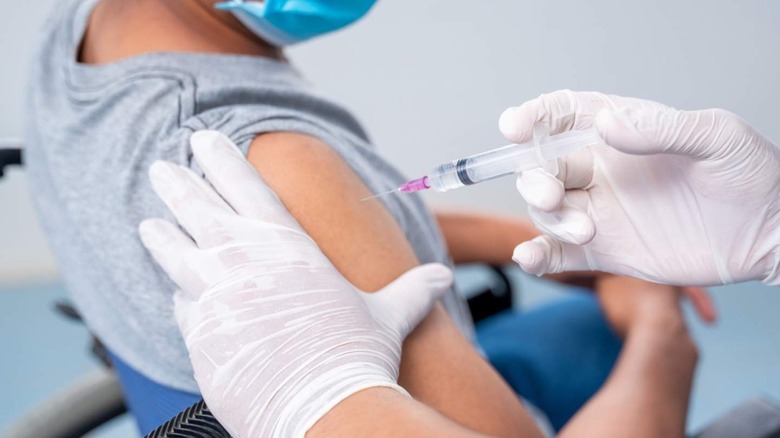CDC: COVID-19 Omicron Is In The US
The first case of the COVID-19 Omicron variant has been identified in America, the US Centers for Disease Control and Prevention (CDC) confirmed today. A coronavirus infection in California was diagnosed as the Omicron variant (B.1.1.529) using genomic sequencing at the University of California, San Francisco.
Details of the specific case are still in short supply. The individual, unnamed by the CDC, "was a traveler who returned from South Africa on November 22, 2021" according to the agency.
Despite horror stories about Omicron's potential for even greater disruption than the COVID-19 Delta variant, this first identified case seems to have been relatively contained. "The individual, who was fully vaccinated and had mild symptoms that are improving, is self-quarantining and has been since testing positive," the CDC added. "All close contacts have been contacted and have tested negative."
What is COVID-19 Omicron?
Like Delta before it, Omicron is just the latest in a series of variants of COVID-19, as the virus mutates and changes. It was first classified as a Variant of Concern by the World Health Organization (WHO) on November 26, 2021. The US subsequently classified it as a Variant of Concern on November 30.
While named, and recognizable to lab diagnostics, there's still plenty about Omicron that's still a mystery to scientists and lawmakers. The variant was first identified by labs in South Africa, though it's unclear whether it originated in the country. South Africa's longstanding expertise in viral sequencing – honed during the country's extended HIV epidemic – has left it typically one of the first to pinpoint new coronavirus strains.

However, it's not known how virulent – or how likely to spread – Omicron is, compared to other variants. Similarly, it's unclear whether the symptoms and the other ways that COVID-19 might present will be the same as per previous outbreaks. That information will only come as more cases are identified and studied.
Is Omicron more deadly than other COVID-19 variants?
The two biggest questions surrounding COVID-19 Omicron undoubtedly come down to severity and prevention. For former, despite speculation, still hasn't been ascertained. It's unknown at this point whether cases of Omicron are more likely to result in serious illness or death than Delta or other variants.
As for prevention, vaccination – along with masking and social distancing – remains the safest route to avoiding infection. Again, it's uncertain how effective the current COVID-19 vaccines are against Omicron, but efforts to figure that out are already underway. Pfizer-BioNTech has said that, if the current vaccine is found to be insufficient, it expects an updated version could take up to 100 days to develop.
"CDC has been actively monitoring and preparing for this variant, and we will continue to work diligently with other U.S. and global public health and industry partners to learn more," the agency said in a statement today. "Despite the detection of Omicron, Delta remains the predominant strain in the United States."
What happens next?
For the moment, the official advice hasn't changed. "The recent emergence of the Omicron variant (B.1.1.529) further emphasizes the importance of vaccination, boosters, and general prevention strategies needed to protect against COVID-19," the CDC emphasized. "Everyone 5 and older should get vaccinated boosters are recommended for everyone 18 years and older."
Efforts to deploy the COVID-19 vaccine in the US continue. As of the latest figures, over 197 million people are fully vaccinated in the United States. More than 41 million have received a booster dose since August 13, 2021.
